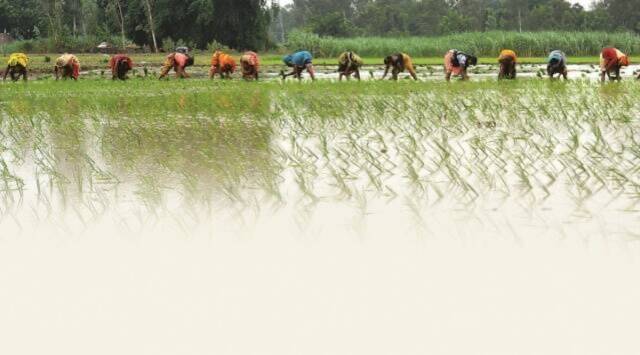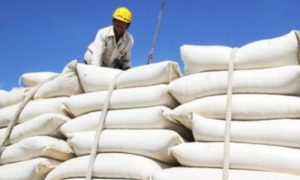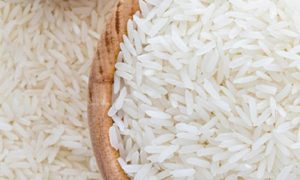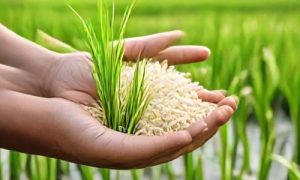Despite floods, Punjab meets 75% of its basmati sowing target so far

The state has hitherto managed to meet 75% of its basmati sowing target against considerable odds. Despite heavy floods affecting around 1,472 villages in 19 districts of Punjab, the state has managed to complete basmati sowing on approximately 4.50 lakh hectares of land when the initial target was 6 lakh hectares (for basmati cultivation) this year. The government was expecting 31.67 lakh hectares under rice crop, including non-basmati(paddy) and basmati varieties, this year.
According to field reports from the Department of Agriculture (Punjab), rice sowing has been completed on approximately 30.38 lakh hectares of land this year. Out of this, paddy was sown on around 25.88 lakh hectares before the floods hit the state. The basmati sowing was interrupted because it is typically done 25-30 days after paddy and the floods occurred during this time. The heavy rain had inundated about 2.38 lakh hectares (mostly paddy area) of land in the state during the second week of July.
After the water receded, it was found that paddy on around 1.50 lakh hectares remained intact, that is, it survived. But the crop came a cropper on about 86,500 hectares of land. The majority of the damaged paddy fields are still in standing waters and now re-transplantation is expected on them. Earlier the re-transplantation estimate was 1 lakh hectares, as per the initial reports.
Due to the delay in re-transplantation in flood-affected areas, there might be a decrease in the area under paddy to some extent this year. Some farmers may opt for basmati, a short-duration crop, in areas where re-transplantation is required. Additionally, farmers have been advised to consider growing other short-duration crops like pulses, but many prefer paddy and basmati due to the remaining period of rainy season, which is suitable for the crop except during floods.
The Bharatiya Kisan Union (BKU) Doaba has suggested that farmers must consider cultivating the year-long sugarcane crop, with its sowing season starting in September. The crop is recommended as it can withstand floods for longer durations compared to other crops, said an office-bearer of the organisation.
Speaking to The Indian Express, BKU Doaba general secretary Satnam Singh Sahni said that sugarcane is an annual crop and farmers can do intercropping with it till the time it gains a certain height. “Cultivating sugarcane crop is more advisable even in flood-prone areas of the state, as the crop can withstand floods for more days vis-a-vis other crops and it will also help in the much-needed diversification (from paddy to other crops),” Satnam Singh Sahni said, adding that the government must do an analysis on it and save the farmers from heavy losses due to crop damage.
Though a large area under paddy is not recommended in Punjab as it is the major cause of the depleting water table in the state, this crop is farmers’ first love as there is a market for it. Basmati is always recommended but its fluctuating prices deter farmers from growing it in large areas.
The major basmati-growing districts in Punjab include Amritsar, Fazilka, Tarn Taran, and Gurdaspur, while high paddy cultivation is recorded in districts like Sangrur, Patiala, and Ludhiana. An agriculture department officer said that notwithstanding the floods, Punjab is expected to cultivate around 25 lakh hectares of paddy (excluding basmati) this year, despite the need to curtail rice area from 30 lakh hectares to 20 lakh hectares.
Speaking to The Indian Express, Dr Gurvinder Singh, the Director of Punjab Agriculture Department, said that the final figures for paddy and basmati cultivation will be determined once re-transplantation is carried out in the flood-affected areas. He expressed optimism about an increase in basmati cultivation this year.

















